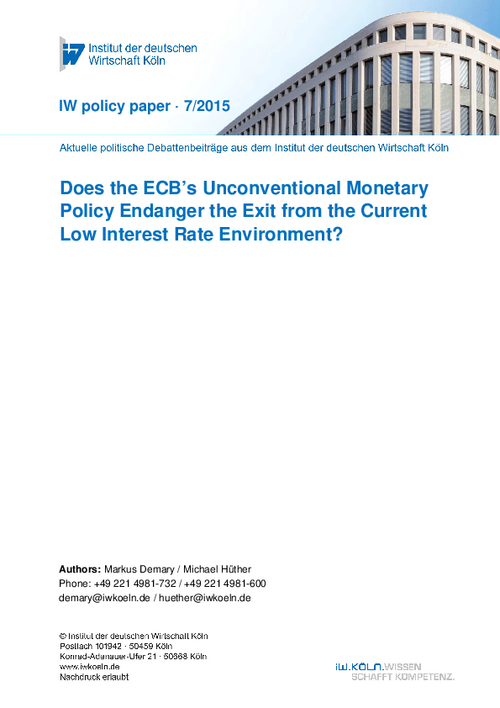Many Eurozone governments, corporations and private households are still involved in an unfinished balance sheet repair process. Debt levels are still high and there are looming risks that negative developments, e.g. deflationary dynamics, cause debt to become unsustainable. The state of these Eurozone countries is comparable to a patient who recovers from a bad disease and whose immune system is not yet able to protect him from further infections. Despite the still unstable Eurozone, the European Central Bank’s (ECB) monetary policy measures, especially its large-scale asset purchase program, are under attack. This policy paper will show that overcoming the Eurozone balance sheet recession is the only way to enable monetary policy to exit from the low interest rate environment. Hence, the ECB’s current monetary policy stance is imperative against the background of the still unfinished balance sheet recession. Moreover, it demonstrates that the ECB’s unconventional monetary policy measures do neither contradict a speedy exit from the low interest rate environment nor do they contradict a continuation of the supply-side reform agenda. In fact, policy measures that increase potential growth and stabilize inflation expectations are inevitable to enable a successful deleveraging. In light of this, the ECB’s large-scale asset purchase program is a strong signal that could bring inflation expectations back to the vicinity of the ECB’s inflation target. Stabilized expectations in turn will pave the way for a successful balance sheet repair. Only a finished balance sheet recession enables a successful exit from the low interest rate environment. Although necessary, the ECB’s large-scale asset purchases have risky side-effects. Attenuating these side-effects, however, is the responsibility of national governments because the ECB’s monetary policy can only prevent deflationary dynamics. It is not a substitute for supply-side reforms.

Does the ECB’s Unconventional Monetary Policy Endanger the Exit from the Current Low Interest Rate Environment?
IW policy paper


Markus Demary / Michael Hüther: Does the ECB’s Unconventional Monetary Policy Endanger the Exit from the Current Low Interest Rate Environment?
IW policy paper

More on the topic

German Wage Policy between Inflation and Stagnation: Are Conflicts with the Aims of Monetary Policy Looming?
After the economic and financial crisis of 2008/9, the German labour market soon began to recover, creating scope for a comparatively expansive wage policy.
IW
A Macroeconomic Analysis of Wage-Price Spirals
The subject of this Analysis is the forms that wage-price spirals can take and how they influence macroeconomic stability and inflationary trends in Germany.
IW